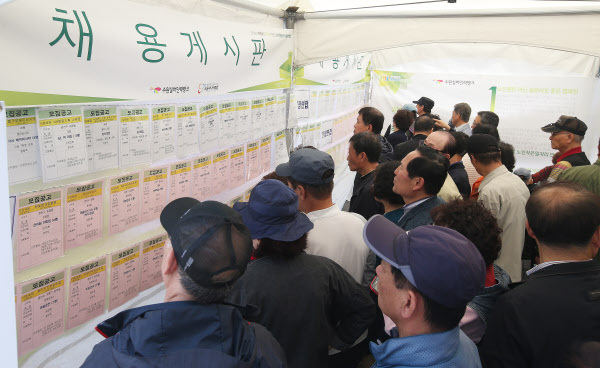Korea's minimum wage hike is feared to deal a harsh blow to jobs for elderly people as many of them are subject to the pay regulation, sources said Friday.
The government jacked up the minimum wage by 16.4 percent to 7,530 won ($6.62) per hour on Jan. 1 this year, the biggest hike in nearly two decades. Next year's minimum wage has been set at 8,350 won, up 10.9 percent from this year.
 |
(Yonhap) |
According to Statistics Korea, nearly 205,000 Koreans aged 55 or older were employed by the business facility management and support services last year, which include apartment security and cleaning.
The number accounted for nearly 34 percent of all those hired by the business areas as of August last year, or about triple the 12.7 percent average for all business areas.
Of the 205,000 seniors, 19.5 percent were paid less than the minimum wage, the second highest after the hospitality and restaurant industry's 34.4 percent. The figure for all industrial sectors came to 13.3 percent.
Given those figures, analysts said the country's increased minimum wage will likely deal a more serious blow to elderly workers, who mostly work as apartment building guards or part-time employees for gas stations.
Indeed, security and cleaning service operators have been increasingly relying on outsourcing, while a growing number of gas stations are installing self-service pumps, they said.
"Companies will first consider cutting back on senior workers if wages go up, largely because they hire elderly people because of low wages without thinking about productivity," a source said.
Korea has a high elderly employment rate as many senior work to help supplement their living costs. As of 2015, the employment rate of Koreans aged 65 or older reached 30.6 percent, the second highest among the members of the Organization for Economic Cooperation and Development after Iceland's 38.7 percent. The OECD average stood at 13.8 percent.
Korea's poverty rate for the elderly is also high as many seniors land low-paying jobs. The rate came to 63.3 percent in 2015, the highest among the OECD nations. (Yonhap)








